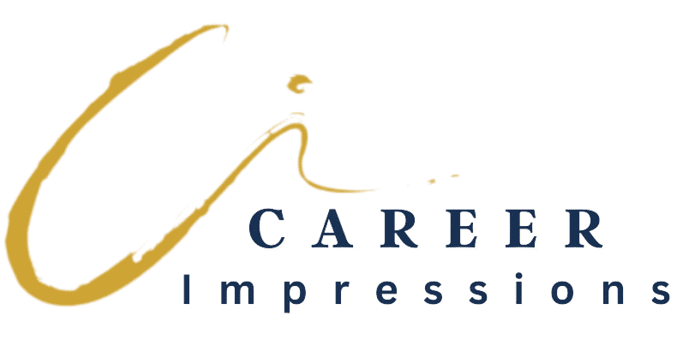
Your Resume Alone Won’t Land You the Job — Here’s What Will
So, you’re looking for a new job. You polish up your resume (maybe even invest in a professional writer), fire it off in response to a few online postings or to a few recruiters, and wait for the offers to roll in. Easy, right?
Not exactly.
A strong, modern resume is essential, but if you think it will do all the heavy lifting for you, think again. Resumes alone don’t land jobs. People do.
Why Your Resume Alone Isn’t Enough
Many professionals I work with are eager to invest in a great resume, yet they resist investing in any other aspect of their job search. They expect this single document to carry the entire weight of their candidacy.
Here’s the problem: when that resume doesn’t generate the immediate results they hoped for, they become discouraged and confused. They question the resume, the process, or even themselves.
But in reality, the issue isn’t the resume. It’s that they’ve skipped the rest of the process.
Winning a job takes effort on multiple levels. It’s a comprehensive strategy, not a one-and-done step. Let’s break down the complete picture of a successful job search from foundation to finish.
Step 1: Career Planning – Know Thyself (and Your Job Target)
Before you start applying, you need to understand who you are and what you want. That means:
-
Identifying your top strengths and transferable skills
-
Understanding your ideal work environment, company size, and industry
-
Being honest about your career goals and lifestyle preferences
- Narrowing your job target to one role (no, casting a wider net isn’t going to help)
Example: If you’re a marketing manager who thrives in startup environments, applying to roles at legacy Fortune 500 companies might not be a match, even if the job title looks right on paper. Additionally, if you are targeting multiple roles, you will need a separate strategy (and tools) for each!!
Without clarity, you’ll waste time on roles that don’t suit you and dilute your message. A generic approach rarely delivers strong results. And let me be really honest here — experience alone isn’t enough in this tough market. You won’t win interviews based on titles or years of experience. You have to know and position your value and impacts to get noticed, and this means having a narrowed job target in focus!
Step 2: Researching and Networking – Stop Guessing, Start Connecting
Are you actively researching your target companies and industries? Do you know how they hire, what they value, and what problems they’re trying to solve?
More importantly, are you talking to the right people?
Example: Let’s say you’re eyeing a role at a tech company. A quick LinkedIn search reveals that a former colleague now works there. Reaching out for an informal catch-up could provide you with insider information, a referral, or even a heads-up on roles that aren’t yet posted.
Referrals consistently rank among the most effective ways to land interviews. Networking doesn’t have to be awkward; it’s about building relationships, sharing insights, and staying curious. A recent Business Insider article suggests that networking (which includes referrals) is more essential than ever, especially when job seekers feel reduced leverage, competition is tighter, and employers are more selective.
Step 3: Diversified Job Search Strategies – Go Beyond the Job Boards
Too many job seekers rely solely on online postings. The reality? Online applications, especially those submitted through job boards, can have low ROI.
Instead, consider:
-
Tapping into your alumni network
-
Attending virtual or in-person industry events
-
Connecting with recruiters in your niche
-
Reaching out to hiring managers directly
-
Joining professional communities or associations
Example: A project management client of mine, who initially only applied to jobs through Indeed, pivoted by reaching out directly to 10 hiring managers on LinkedIn and landed three interviews within two weeks.
When hiring is slower or roles are more competitive, your strategy must shift. Tailored, thoughtful applications paired with strategic activities (including networking / outreach) can be supportive. A modern job search is multi-channel. Diversify your approach to improve visibility and results.
Step 4: Career Documents – Build a Cohesive Toolkit
Yes, your resume matters. But it’s only one part of your professional “pitch.”
Do you have:
-
A sharp, tailored cover letter?
-
A fully optimized LinkedIn profile?
-
A strong executive bio?
-
An updated references sheet?
-
A thoughtful thank-you letter template?
Each of these documents adds credibility and consistency to your candidacy.
Example: A VP-level candidate once had a stellar resume but a neglected LinkedIn profile that hadn’t been touched in years. After updating the platform with strategic content and engaging with it weekly, recruiters began reaching out, without her having to apply. The differentiator here was a great profile paired with consistent engagement efforts (you can’t just set it and forget it).
Your documents and digital presence should all convey the same message, and that message should clearly convey value.
Step 5: Interview Preparation – Practice to Perform Best
Don’t assume that if your resume lands you an interview, you’re automatically in and have the job.
Interviews are high-stakes conversations. They require preparation, strategy, and practice, especially if you haven’t interviewed in a while.
Ask yourself:
-
Can I clearly articulate my value in 60 seconds?
-
Am I prepared to discuss employment gaps or career changes?
-
Have I practiced behavioral questions using the STAR method?
Example: A finance professional who hadn’t interviewed in over a decade practiced mock interviews and refined her “Tell me about yourself” pitch. She walked into her next interview with confidence and got the offer.
If interviews make you anxious or rusty, consider working with a coach to sharpen your delivery. I can recommend a few!
Step 6: Job Offer Negotiation – Know Your Worth
The job offer is exciting, but it’s not the final step. It’s the beginning of negotiation.
Do you know:
-
What is the market rate for your role and location?
-
How to frame a counteroffer professionally?
-
What perks or benefits (beyond salary) are negotiable?
Example: One senior manager initially received an offer that was 15% lower than the market average. After researching and preparing her talking points, she reapproached the hiring leader and walked away with a slightly higher offer and more vacation time.
Now, to be clear, the job market can play a hand in salaries and not all asks will be a ‘yes’. But negotiating is expected, not pushy. It sets the tone for how you value yourself and how the company will value you as well. The key is to come prepared with data and proof points, not just a number.
It’s a Full-Circle Effort
A great resume opens doors, but it can’t walk through them for you.
To win the job, you must take ownership of every part of your search:
- Know yourself and your job target
- Do your research
- Get active online and off
- Establish a digital brand that promotes you 24/7
- Build meaningful relationships (and not just when you are looking for work)
- Diversify your search
- Align your tools and materials
- Prepare for conversations
- Advocate for your worth
Remember: you are the driver of your job search. The resume is your vehicle, but you still have to steer.
Ready to take control of your next career move? Then it’s time to stop relying on a single step and start building and steering a whole job search strategy, using my All-In Job Search Checklist.
